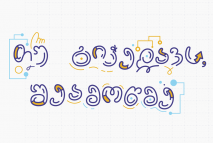Collaboration with the World Bank (WB)
The World Bank assists Georgia in the establishment of a regulatory regime in the field of telecommunications. The regional vice-president of the World Bank, leader of the Department of Georgia of the Directorate of the South Caucasus and the whole telecommunications team of the World Bank, since its creation, provide a great assistance to Georgia in establishment and development of a regulating authority in the field of telecommunications.
On the basis of the recommendations of the World Bank, important changes have been made in the Georgian law “on post and communications”.
A two-step project was elaborated and it includes all the main aspects of transformation and perfect development of the field.
The World Bank financed the first part of the project. This part includes the development of normative and technical base of the field and its harmonization with the world’s best practice, as well as the elaboration of concrete directives and strategy, with the assistance of international experts. The first part of the project includes the main issues necessary to the development of an effective regulating authority, such as standardization and certification. The issues on conformity of standardization and certification systems existing in the country with the world’s best practice and introduction of the European Harmonized Standards in Georgia are very important for the development of the telecommunications sector of Georgia.
On the 14th April 2004, within the project of the World Bank, a contract has been signed by the Georgian National Communications Commission and the individual consultant Edward Farrell, for the management of frequency spectrum in Georgia, the evaluation of the situation related to the monitoring activity and equipment, the future modernization of equipments and effective future purchase of modern equipment. The individual consultant, Edward Farrell submitted the following documentation (considered in the contract): the initial report, plan of short-term and long-term procurements and tender documents for short-term procurements. In addition, within the credit of the World Bank, in case of the realization of the funds aimed for the purchase of frequency spectrum equipment, the consultant had to assist the Commission in the following issues: evaluation of applications of the bidders, selection of a contractor, signing contract and receiving equipment. The tender on short-term procurement of frequency spectrum equipment has not been realized, for the reason that the Ministry of Finance decided to reconsider the credit provided by the World Bank and allocated it to another purposes. For this reason, the last obligation considered by the contract, remained unrealizable.
The first stage of the World Bank’s project ended in September 2004. Within this project, the hired German Consulting Company “DETECON INTERNATIONAL GMBH” elaborated several documents, including the analysis and review of regulatory/legislative bases of the sector, strategy versions and drafts of normative acts related to the issues of interconnection, licensing, certification, standardization, competition, universal service, numbering, tariff policy, defense of the consumers’ rights and organizational structure.
These consultants held several seminars on the above-mentioned issues for the personnel of the Georgian National Communications Commission and communications operators.
The financing of the second stage of the World Bank’s project is in the process of discussion in the World Bank. This financing has a great importance for our country. The second stage of the project includes:
The financing of the universal service fund, aimed to introduce and develop communications facilities and services in the regions of the country; procurement of special equipment necessary for the frequency spectrum monitoring of the country; commencement of regional telecommunications projects.
Almost before 5-6 years, within the period when the perspective of signing a peace contract existed in Kharabagh, the World Bank elaborated 6 series of researches. In June 2001, on the basis of the results of these researches, the Georgian National Communications Commission, The Ministry of Transport and Communications of Georgia, the World Bank and the PPIAF (Consulting department of the private-public infrastructure, the multi-donor of the department of technical assistance) organized a three-day seminar in Tbilisi.
As a result of the seminar, a project of regional strategy and recommendations has been elaborated for three countries of the region, in order to eradicate the main causes impeding the development of communications, transport and trade.
By means of a standard selection process, the World Bank selected the main consulting company, which carried out the regional telecommunications strategy and experimental project (most importance was attached to Georgia, but the project included also Armenia and Azerbaijan), within the grant of the PPIAF. The consulting company “Apoia Consultoria” (Peru) has been selected. The consulting team consisted of the former representatives of CEO and the regulating authority of Peru. The team also includes the manager of the Universal Service Fund of Peru (FITEL).
The consulting team has already visited Georgia several times. In September 2003, “Apoio Consultoria” submitted its first complete set of reports. During the four-hour meeting with the leadership and the employees of the Georgian National Communications Commission, a detailed analysis of the current situation of the sector has been presented, the existing problems and the initial approach to the universal service strategy have been determined. The approaches related to carrying out the research of demands during next months have been discussed and the selection of Kakheti as a candidate region has been decided.
The Mission of the World Bank, in association with the employees of the Georgian National Communications Commission and “Sakartvelos Elektrokavshiri” and the consultants of “Apoia Consultoria”, visited the region of Kakheti. During this visit, the Mission viewed the recently renewed digital telephone station of Telavi, visited also several far areas of the region. This visit revealed the great necessity of capital investments for the development of telecommunications infrastructure in this part of the country, where the most part of villages and districts have no operating telephone point.
The measures taken for the collaboration with the World Bank and sharing of international practice, as well as the elaborated projects are totally in conformity with the policy and strategy of development of the telecommunications sector.










